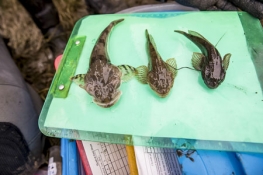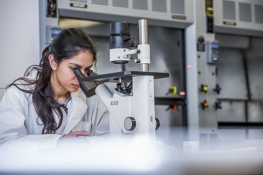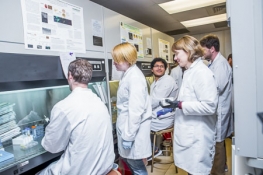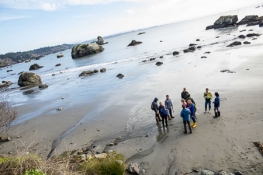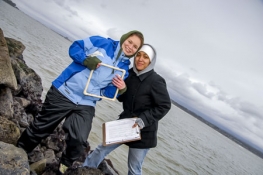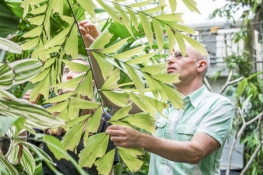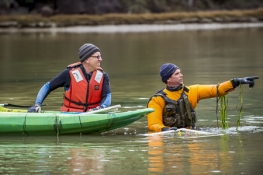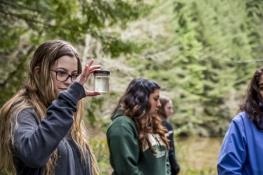Careers & Alumni
Our Biology, Botany, and Zoology majors are broadly based which allows latitude of choices when developing a program suitable to individual needs.
Favorable opportunities can be expected for biological scientists with advanced degrees and for bachelor's candidates with outstanding educational and experiential backgrounds. Employment in the life sciences is expected to grow due to recent advances in genetic research, advances in biological technology, and efforts to conserve the environment.
The employment outlook will vary by specialty. Those who have the ability to do research in areas related to the genetic, cellular, and biochemical areas of biology should experience better employment opportunities than those in other specialties. However, many persons with a bachelor's degree find jobs in occupations such as sciences or engineering technicians or medical laboratory technologists. There is a continuing demand for secondary and private school life science teachers.
Related Job Titles
The following list is not meant to be all-inclusive; many other job alternatives and titles may exist. Many of the job titles listed require further education.
Biologist
Biological Technician
Life Scientist
Laboratory Asst/Tech.
Research Assistant
Technical Writer
Naturalist
Park Ranger
Environmental Educator
Museum Curator
Science Teacher/Professor
Conservation Officer
Environmental Scientist
Environmental Planner
Environ. Protection Specialist
Ecotourism Specialist
Scientific Divers
Environmental Consultant
Science Writers
Agriculture Inspector
Botanist
Zoologist
Horticulturist
Biotechnology Research Technician
Plant Geneticist
Plant Ecologist
Plant Physiologist
Science Writers
Water Quality Biologist
Marine Biologist
Aquatic Biologist
Marine Educator
Environmental Health Sanitarian
Industrial Hygienist
Microbiologist (Public Health Micro.)
Biotechnologist
Pharmaceutical Sales Rep.
Scientific Illustrator

